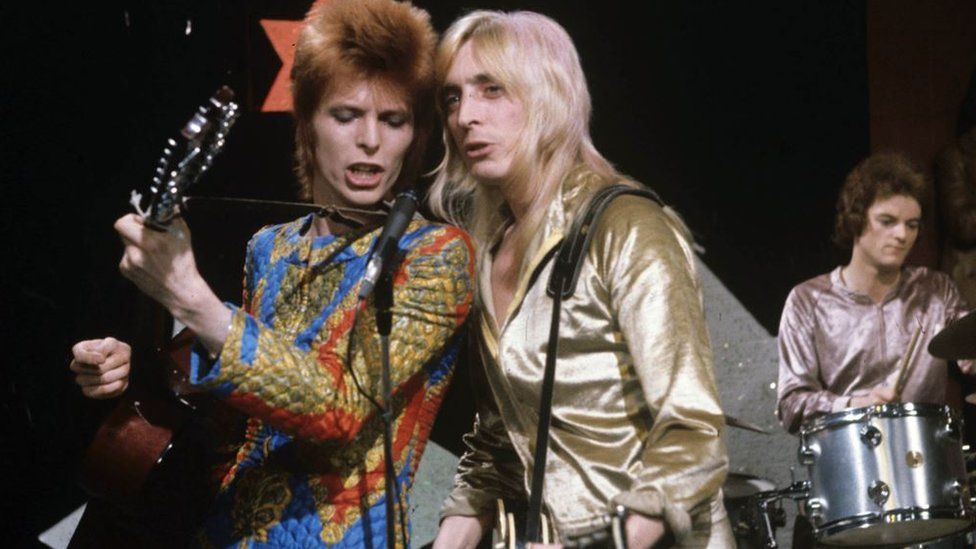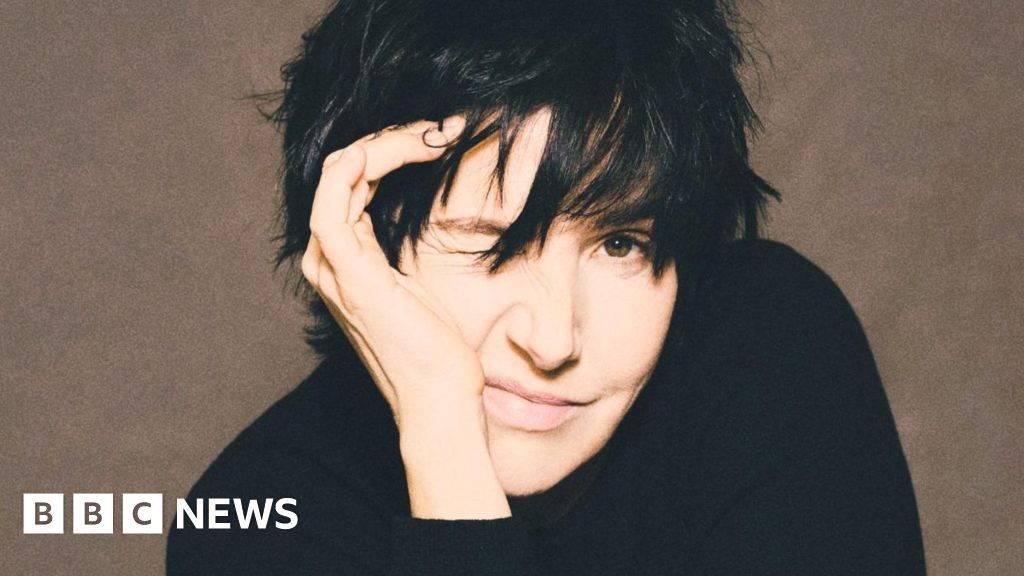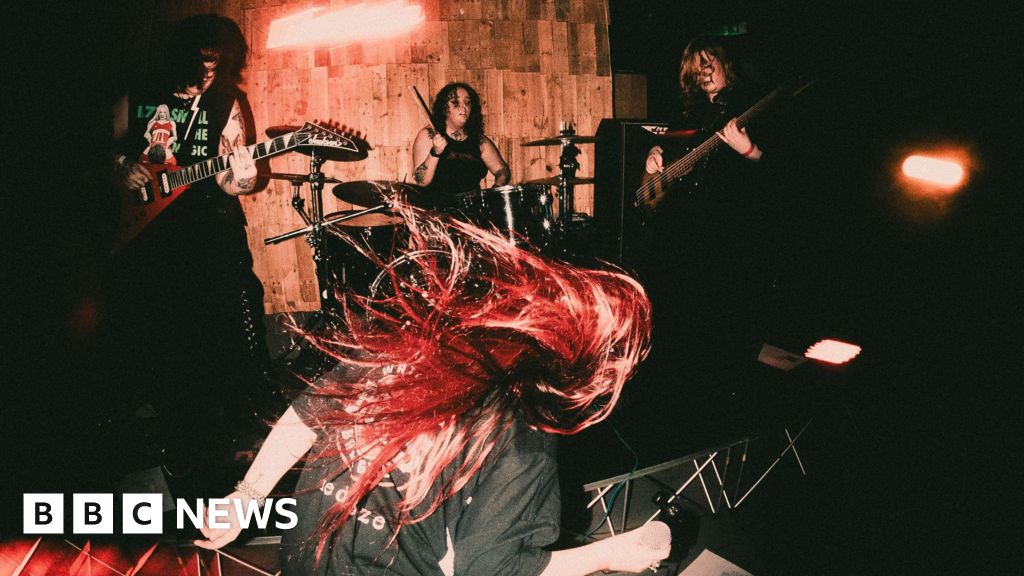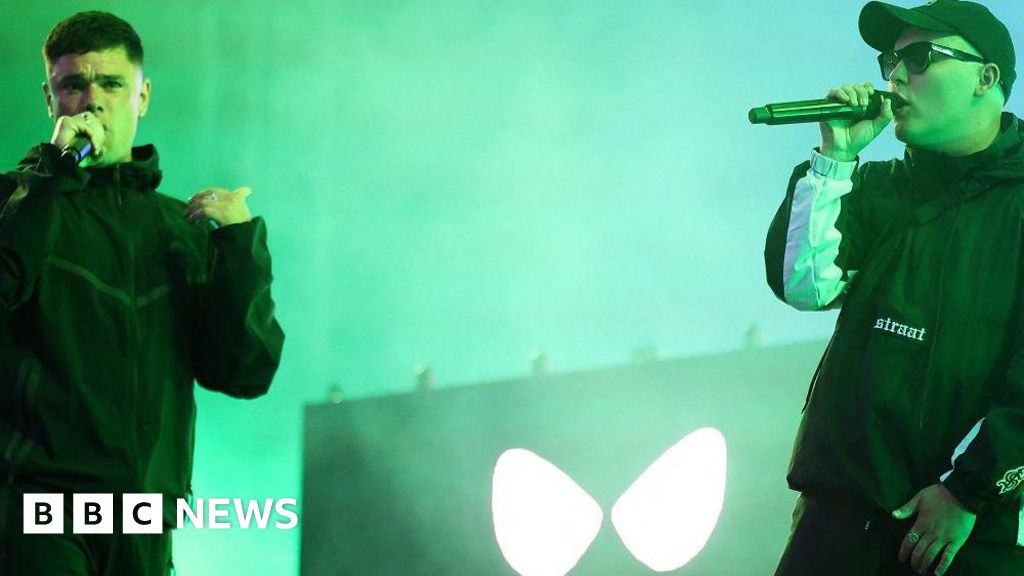ARTICLE AD BOX
 Image source, Shutterstock
Image source, Shutterstock
Woody Woodmansey (right of picture) said Bowie's announcement came as "complete surprise".
Fifty years after David Bowie revealed he was ditching his Ziggy Stardust alter ego live on stage his former drummer has spoken of the shock moment.
Speaking to the BBC, Michael "Woody" Woodmansey recalled the moment Bowie dropped the bombshell during a show at the Hammersmith Odeon on 3 July 1973.
The 73-year-old from Driffield said it was a "complete surprise" for everyone.
He said he remembered bass player Trevor Bolder turning to him and saying "it sounds like we've got the sack".
The success of the 1972 album The Rise and Fall of Ziggy Stardust and the Spiders from Mars had set Bowie on course to become a superstar.
But the last surviving member of the eponymous band said he also felt that, after an 18-month tour, the androgynous stage persona had become "too much" for Bowie to maintain.
Image source, Getty Images
Image caption,Mr Woodmansey said he believed the demands of Bowie's alter ego had become too much
Mr Woodmansey said it had been the final night of a tour to promote the album when Bowie made the shock announcement to the crowd.
"He said 'not only is it the last show of the tour, it's the last ever show'.
"I thought, 'what did he just say?', it did not compute, because you're on a high from playing and the whole atmosphere."
However, he said that after about 185 concerts he had noticed Bowie becoming "a bit stressed".
"I didn't really know why and thought that was maybe just how stardom was affecting him."
But he said he thought the preparation for becoming Ziggy - the costume, make-up, hair and interviews - "became too much" for Bowie.
He described the persona as "all encompassing for him, he played the part 100%".
"Somewhere on the American tour you got in a taxi and you were in a taxi with Ziggy and Ziggy didn't carry money, so you better make sure you had some," he recalled.
Image source, PA
Image caption,David Bowie died of cancer at the age of 69 on 10 January 2016
He said the announcement had been "hard to assimilate", adding that the group had become used to Bowie "saying things and coming up with ideas which nothing came of".
"Sometimes he said things just for effect," he said. "So, did he mean it or was it just for the audience? It took a few days to realise that was it."
He said he and Bowie, who died of cancer in 2016 at the age of 69, did eventually discuss the dramatic end to what is often seen as the musician's most notable creation.
"I saw him again years later, cos we hadn't particularly left on good terms after Hammersmith, and it was good," he said.
"We spoke about old times for a whole day and it was quite emotional and he said 'look I'll never get that rocket ride again of going from relative obscurity to the top and you guys did that for me, I just want to let you know that.'"
Follow BBC East Yorkshire and Lincolnshire on Facebook, Twitter, and Instagram. Send your story ideas to yorkslincs.news@bbc.co.uk.

 1 year ago
31
1 year ago
31








 English (US) ·
English (US) ·